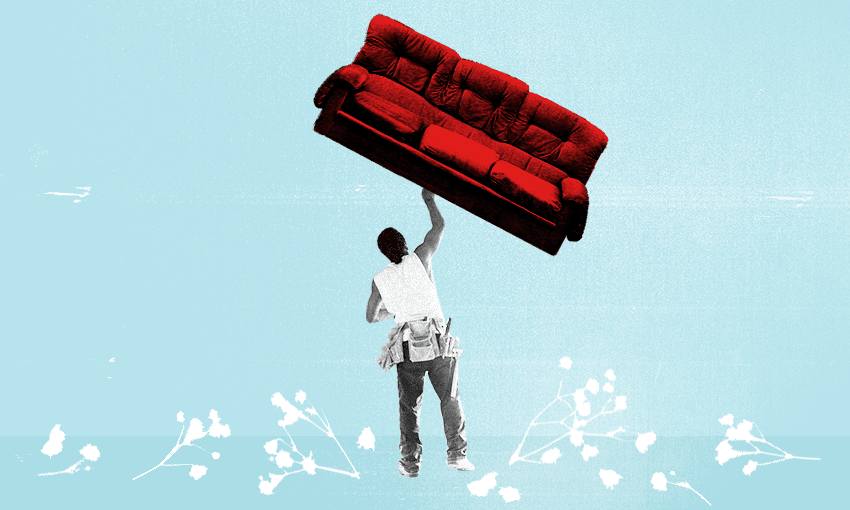Some of our MPs would like to flirt with the idea of scrapping Labour Day. For the sake of those who tire their bodies to make a living, let’s hope they don’t.
Say “labour” these days, and most people picture a political party. Either that or childbirth. But today is Labour Day, and it’s about another kind of labour altogether: acknowledging the efforts of trade unions and others to lift the status of workers.
Our first Labour Day in 1890 was a grand affair: parades and brass bands and banners, public picnics and tug-of-war contests. Samuel Parnell, who campaigned for the eight-hour day in New Zealand, was 81 by then, and sat in a wagon drawn by four plumed horses, as a procession made its way through downtown Wellington.
But how relevant is the L-word in the 2020s? How many of us now actually labour for a living? Do hours spent at a desk, laptop, or shop counter qualify?
The Oxford English Dictionary defines “labour” as physical or mental work. Yet I suspect that, for most of us, the word implies drawing on one’s bodily resources. If you hear of ”hard labour”, you don’t picture someone sentenced to extra hours designing a spreadsheet.
Still, it’s probably the best available adjective for the holiday. ”Work Day” evokes a school fundraising project; ”Careers Day” is an expo at the local stadium; ”Job Day” was the Boy Scouts, decades back.
I‘ve had limited experience of physical labour. There were the Sundays in my final high school year when I hoed and dug in Jack Yee On’s market garden, while he scrimped so his spoilt son could go to university. There was later holiday work in the timber yard and cardboard processor. But apart from that, my work has taxed me only from the neck up.
I contrast that with my parents. He was a wool classer; she worked part-time in a tobacco factory. They stood on hard floors for hours; they lifted objects; they bent and stooped and stretched. They walked the 3 km to and from work. In the evenings, they sat wearily, uncomplainingly at either end of the kitchen table. And don’t forget the cleaning, cooking and heating, all of which involved far more physical exertion than it does now.
It doesn’t happen much these days, does it? Of course it does. There are still people who tire their bodies to make a living. Still backs and shoulders on which the rest of us depend for our comfortable lives.
Michael and Tio have just reminded me of some. They’re friends who were both grievously damaged in a road accident some years back. He depends on carers to shower, lift and feed him. She’s in constant pain; helps all she can, but needs time for herself. So they rely on the physical strength of agency-employed carers, who, Tio says, are ”drained….worn out” by a working day’s end; who are underpaid by the agency, overlooked by the public.
You’ll be able to name other jobs. I think of when we last moved house. Three guys aged 20-40 lifted couches, beds, boxes of books; lugged them down steps and up a ramp into the truck. At the end of the day, we bought them fish and chips, gave them a few beers and a few extra dollars. They were astonished. ”A lot of people don’t even talk to us,” the eldest said. I can understand why: the sight of someone straining their body on our behalf makes us feel uneasy.
My wife Beth remembers being rebuked by her father when she joked about road workers leaning on shovels and pacing slowly to the heap of shingle. ”They have to do this all day,” he reminded her. ”All day and every day.”
Indeed they do. And because of them, I don’t have to. So I try to acknowledge them. On my old fart’s constitutional, I wave to the guys who walk the adjacent racecourse after each meeting, replacing divots with shovels in thrashing rain or broiling sun. I thank the men and women in hard hats who wave me around the trench they’re digging across the road, for fibre optic to reach my desk.
Some people would like to get rid of Labour Day. Christopher Luxon said so last year, then U-turned. Act still wants to ”balance” the introduction of Matariki as a public holiday, but has now turned its attention to January 2. Curious, that ”balance” word, as if we mustn’t tip the scales towards workers. Watch this new government’s space.
Aotearoa has 11 statutory holidays. Australia has 13, South Korea 14. In terms of annual paid leave, we’re behind Afghanistan, Albania, Algeria, Angola, Armenia and Azerbaijan, to take just the start of the alphabet. A Greens’ proposal to extend ours by a week was rejected by all other major parties. (Well, we have to keep that balance.)
All of this makes me hope we retain Labour Day. “A youth of labour with an age of ease,” was Oliver Goldsmith’s wish for all workers. My mum didn’t live to reach the ease stage; my dad just made it. For their sake alone, I’ll acknowledge, even honour October 23.
